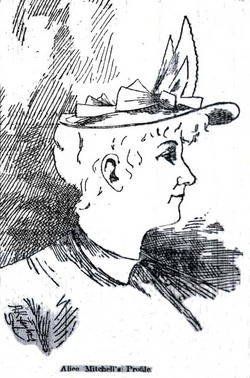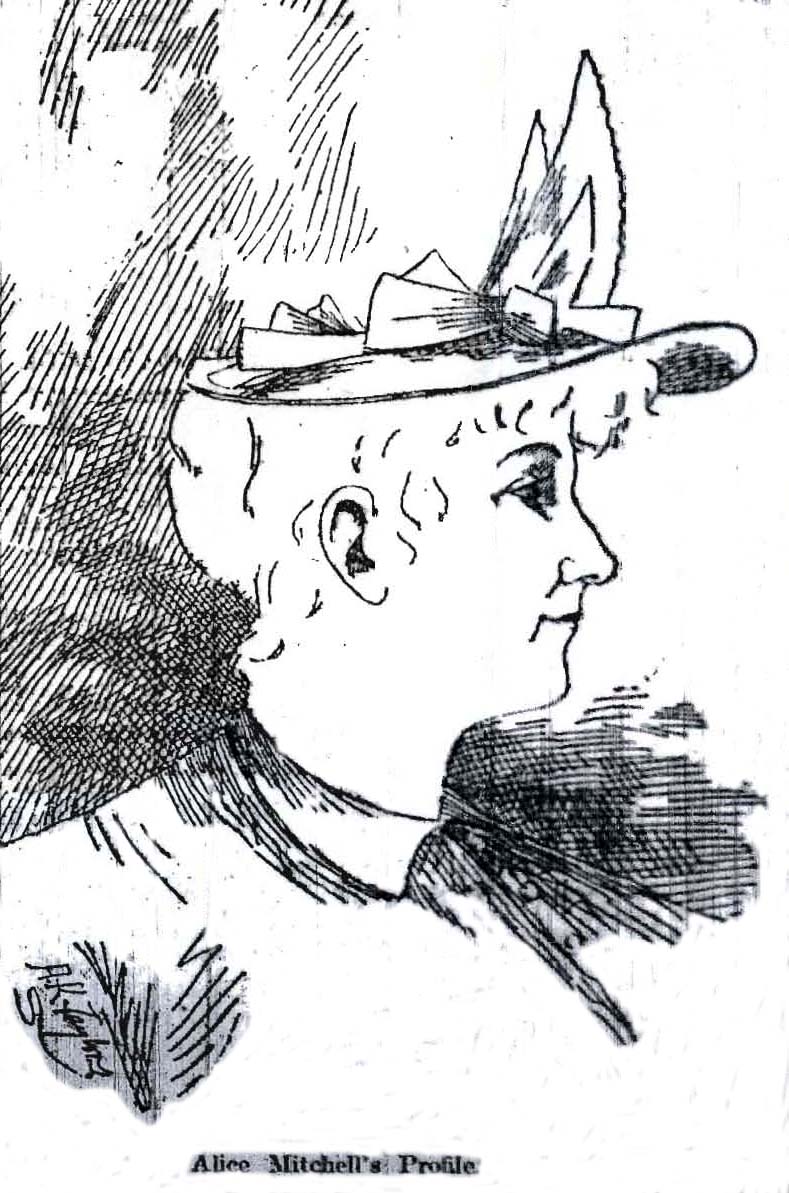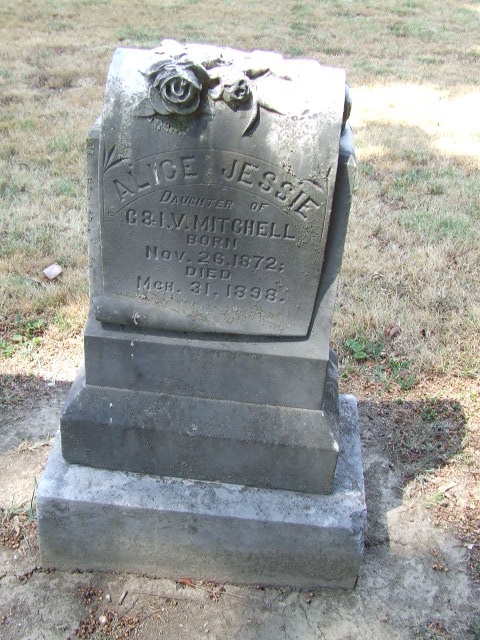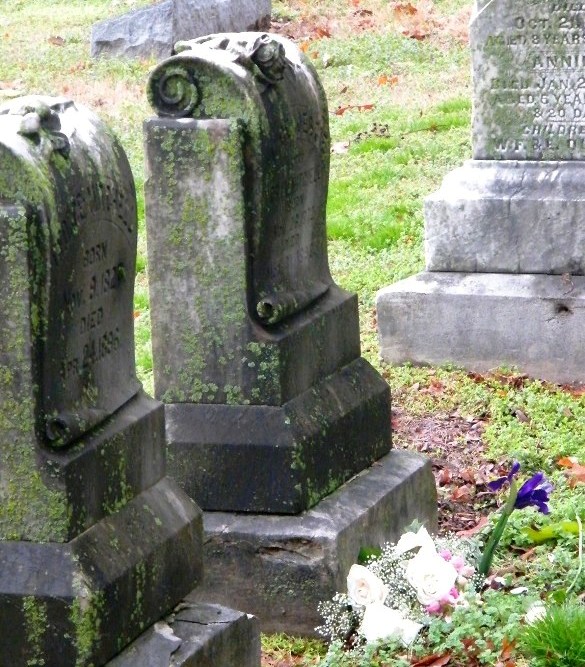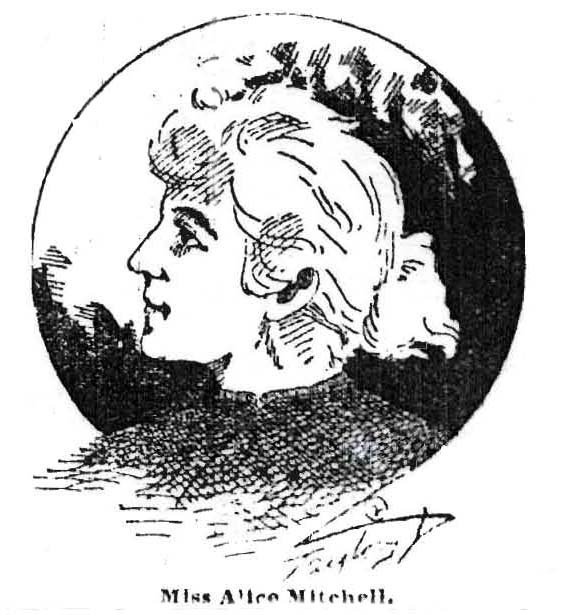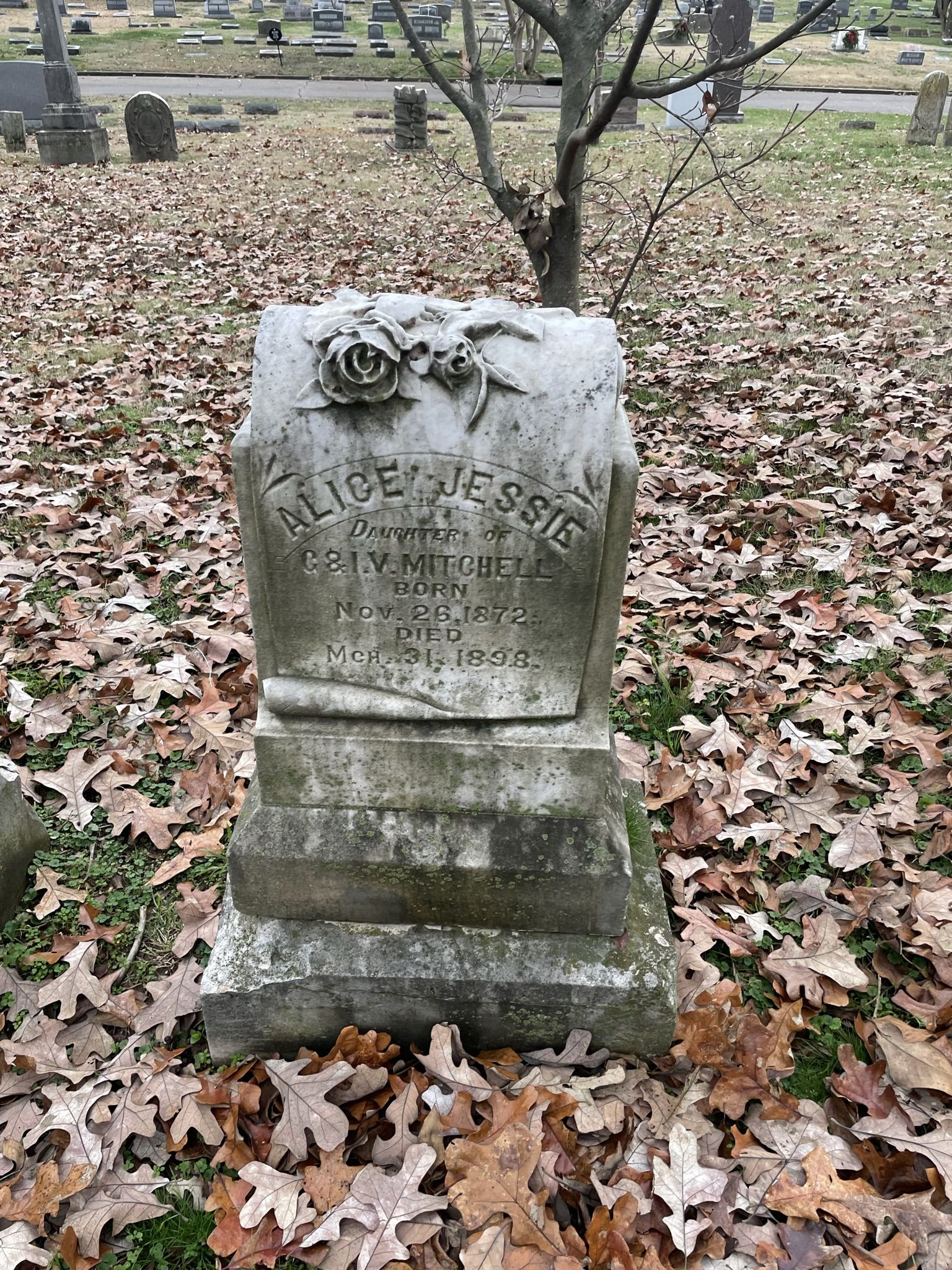The trial was considered so sensational that it made newspapers in Atlanta and New York. The participants in the case included General Luke E. Wright, Malcolm Patterson (later governor and congressman), the attorney and assistant attorney general of the state of Tennessee and Judge Julius J. DuBose, known as one of the most colorful and controversial judges Memphis of that period. Alice was declared insane and therefore not convicted of murder.
Alice died on March 31, 1898, in the asylum at Bolivar, Tennessee. Sources at the time said consumption was the cause of death but later it was said she committed suicide by jumping in the asylum's water tank.
Daughter of George Mitchell and Isabella Vance Scott Mitchell.
Sister of Addie Mitchell, Mattie Mitchell and Robert Mitchell.
The trial was considered so sensational that it made newspapers in Atlanta and New York. The participants in the case included General Luke E. Wright, Malcolm Patterson (later governor and congressman), the attorney and assistant attorney general of the state of Tennessee and Judge Julius J. DuBose, known as one of the most colorful and controversial judges Memphis of that period. Alice was declared insane and therefore not convicted of murder.
Alice died on March 31, 1898, in the asylum at Bolivar, Tennessee. Sources at the time said consumption was the cause of death but later it was said she committed suicide by jumping in the asylum's water tank.
Daughter of George Mitchell and Isabella Vance Scott Mitchell.
Sister of Addie Mitchell, Mattie Mitchell and Robert Mitchell.
Gravesite Details
Her grave is beside the road in her family plot and is marked with a sign reading "Tour Stop."
Family Members
Advertisement
Explore more
Sponsored by Ancestry
Advertisement
